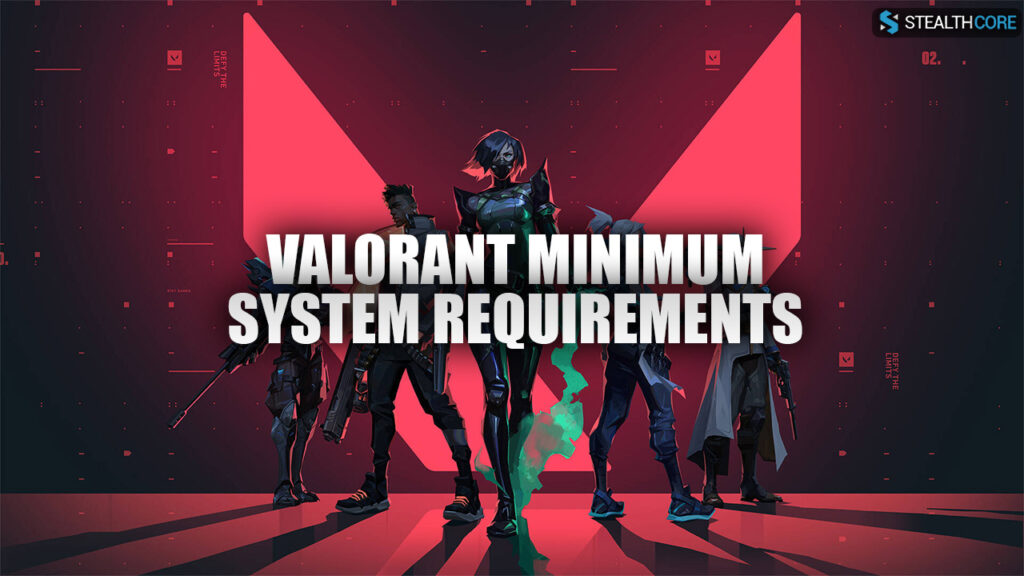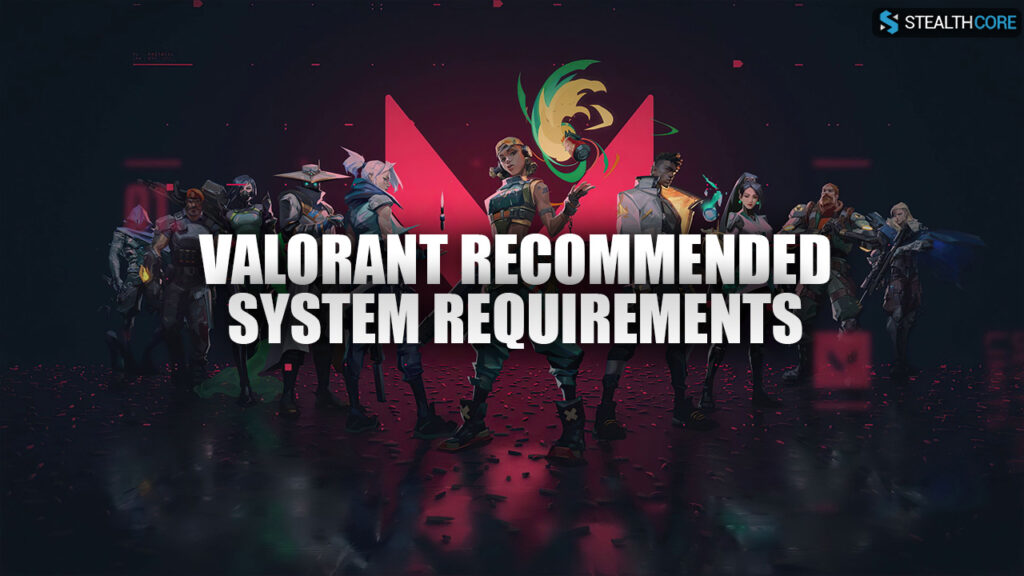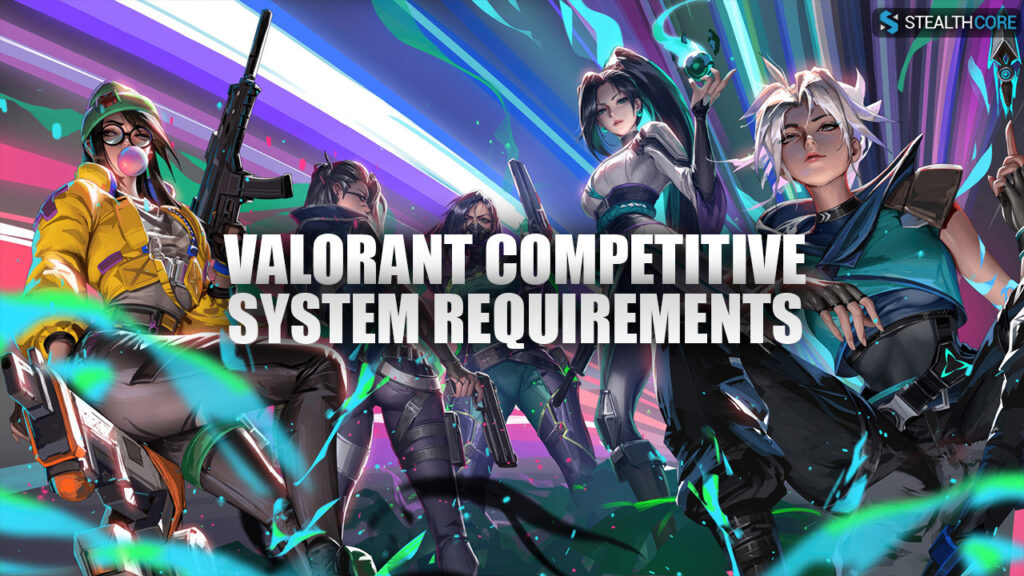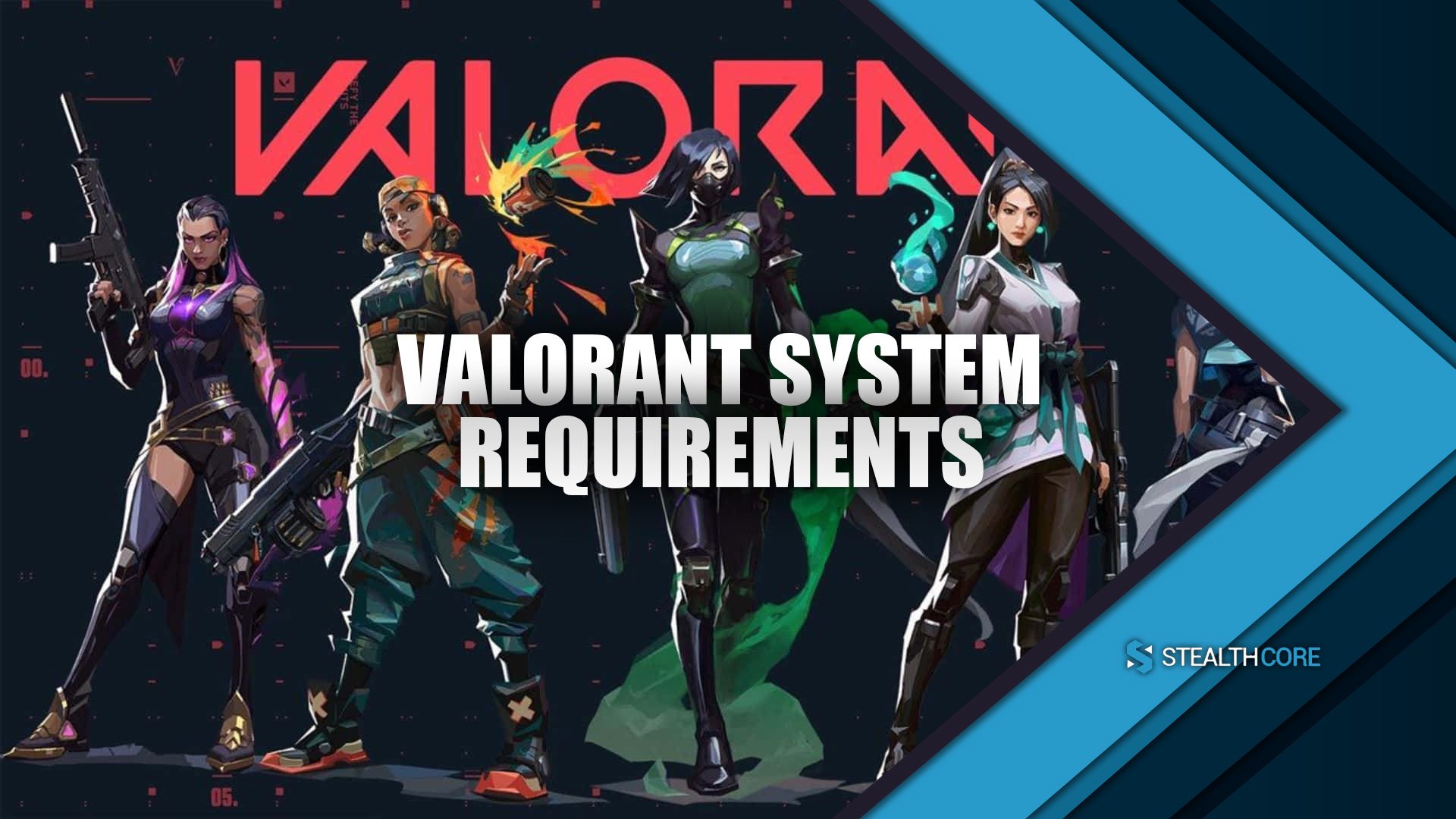So, you decided to pick up this tactical shooter. But can your device run it smoothly? Here are the latest Valorant system requirements.
Valorant is a completely free-to-play tactical shooter where money can’t replace skills. Its competitive gameplay, vibrant graphics, and high-adrenaline team-based matches made it one of the most famous games in the world.
But to experience Valorant at its best and perform at your peak, you need a capable device. If you’re thinking about installing Valorant but are unsure if your PC can handle it, this guide will go over the current Valorant system requirements. Let’s get started.
Valorant System Requirements 2025
Also Read: How to Improve Your Aim in Valorant

Valorant Minimum System Requirements
These are the bare minimum specs required to run Valorant on your PC. The game will be playable but only on the lowest settings. You should also expect frame drops and performance issues.
CPU: Intel Core 2 Duo E8400 / AMD Athlon 200GE
RAM: 4 GB
VIDEO CARD: Intel HD 4000 / Radeon R5 200
PIXEL SHADER: 3.0
VERTEX SHADER: 3.0
OS: Windows 7/8/10 64-bit
These entry-level specs mean that low-end devices can still run Valorant. But it means the lowest graphical fidelity and limited FPS. You can get around 30 FPS with this build.
Also Read: 10 Best Valorant Crosshair Settings

Valorant Recommended System Requirements
If you want to run the game smoothly and enjoy a competitive level of performance, these specs will do the job. If you’re a casual gamer who still wants to climb the ranks in Valorant, then this PC will do just fine.
CPU: Core i3-4150 / Ryzen 3 1200
RAM: 4 GB
VIDEO CARD: GeForce GT 730 / Radeon R7 240
DEDICATED VIDEO RAM: 1024 MB
PIXEL SHADER: 5.0
VERTEX SHADER: 5.0
OS: Windows 7/8/10 64-bit
While this PC may not be much, you can still run Valorant at a stable 60 FPS with these specs.
Also Read: 5 Easy Agents for Beginners in Valorant

Valorant Competitive System Requirements
If you’re a serious player who wants to make it to the top ranks, this setup should be the least you’re looking at. If you don’t want any hiccups while playing Valorant, then these specs can deliver.
OPERATING SYSTEM: Windows 7/8/10/11 (64-bit)
PROCESSOR: Intel i5-9400F 2.9GHz
GRAPHICS CARD: GTX 1050 Ti
RAM: 8 GB
VRAM: 1 GB
DIRECTX VERSION: DirectX 11
STORAGE: 8-10 GB available space
These specs can run Valorant at 144+ FPS and work well with high refresh rate monitors. If you want to bring out your best performance, pair this with our Valorant cheats and you’ll be unstoppable.
My Own Build For Valorant
Personally, I play Valorant on a gaming laptop. I always travel so I need some portability to game on the go. I have been using this gaming laptop for over two years and it gives me flawless Valorant performance.
OPERATING SYSTEM: Windows 11 (64-bit)
PROCESSOR: Intel i5-11400H 2.70GHz
GRAPHICS CARD: NVIDIA® GeForce RTX™ 3050Ti Laptop GPU
RAM: 16 GB
VRAM: 4 GB
DIRECTX VERSION: DirectX 11
STORAGE: 1 TB
SCREEN: 15.6″ FHD (1920×1080), 144Hz
As you can see, the specs for Valorant are already overkill. I connect it to a gaming monitor when I play at home and I never had any issues with this laptop. But make sure you plug into a power source if you game on one.
Frequently Asked Questions
Here are some of the most asked questions about Valorant and its system requirements.
Can Valorant run on a low-end PC?
Yes. Valorant is optimized for budget PC builds. As long as you meet the minimum system requirements shown above, you can run this game.
Do you need SSD for Valorant?
Not at all. However, an SSD will significantly shorten loading times and give you a smoother experience.
What internet speed is recommended for Valorant?
A stable internet connection with a ping not higher than 50ms is required for a smooth and seamless experience. When it comes to speed, even 3 Mbps should be sufficient to play the game.
Can I play Valorant on integrated graphics?
Yes. Integrated graphics can run Valorant but on lower graphic settings and performance.
What to upgrade on my PC for Valorant?
Every PC build is different. However, Valorant is more of a CPU-reliant rather than a GPU-heavy game. If you want to upgrade your PC to play Valorant smoothly but without the heavy costs of a new system, you should prioritize your RAM and CPU.
Pick the most powerful CPU that would fit your motherboard. Upgrading your HDD to SSD would also give you significant speed and performance improvements.
Conclusion
Valorant system requirements are quite accessible. If you’re PC was bought in the last 5 or even 7 years, then most likely you will be able to run Valorant. I know a friend who has a potato PC from 2014 but still runs Valorant with his integrated graphics and 8GB RAM.
So try it out and make sure you optimize your Valorant settings to make the most out of your machine. Our Valorant cheats also work with any device and doesn’t require any specs or software.
If you have any questions about Valorant system requirements, feel free to comment down below and we’ll get to you as soon as possible.





